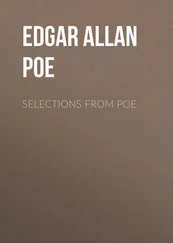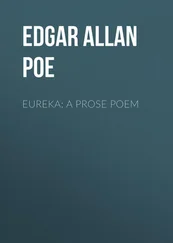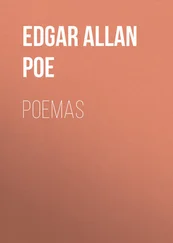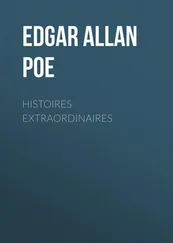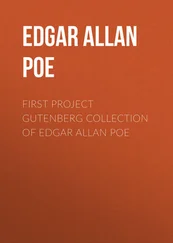Edgar Poe - Mystification
Здесь есть возможность читать онлайн «Edgar Poe - Mystification» весь текст электронной книги совершенно бесплатно (целиком полную версию без сокращений). В некоторых случаях можно слушать аудио, скачать через торрент в формате fb2 и присутствует краткое содержание. Жанр: Классическая проза, на английском языке. Описание произведения, (предисловие) а так же отзывы посетителей доступны на портале библиотеки ЛибКат.
- Название:Mystification
- Автор:
- Жанр:
- Год:неизвестен
- ISBN:нет данных
- Рейтинг книги:5 / 5. Голосов: 1
-
Избранное:Добавить в избранное
- Отзывы:
-
Ваша оценка:
- 100
- 1
- 2
- 3
- 4
- 5
Mystification: краткое содержание, описание и аннотация
Предлагаем к чтению аннотацию, описание, краткое содержание или предисловие (зависит от того, что написал сам автор книги «Mystification»). Если вы не нашли необходимую информацию о книге — напишите в комментариях, мы постараемся отыскать её.
Mystification — читать онлайн бесплатно полную книгу (весь текст) целиком
Ниже представлен текст книги, разбитый по страницам. Система сохранения места последней прочитанной страницы, позволяет с удобством читать онлайн бесплатно книгу «Mystification», без необходимости каждый раз заново искать на чём Вы остановились. Поставьте закладку, и сможете в любой момент перейти на страницу, на которой закончили чтение.
Интервал:
Закладка:
Mystification
by Edgar Allan Poe
Slid, if these be your "passados" and "montantes," I'll have none o' them.
NED KNOWLES.The Baron Ritzner von Jung was a noble Hungarian family, every member of which (at least as far back into antiquity as any certain records extend) was more or less remarkable for talent of some description—the majority for that species of grotesquerie in conception of which Tieck, a scion of the house, has given a vivid, although by no means the most vivid exemplifications. My acquaintance with Ritzner commenced at the magnificent Chateau Jung, into which a train of droll adventures, not to be made public, threw a place in his regard, and here, with somewhat more difficulty, a partial insight into his mental conformation. In later days this insight grew more clear, as the intimacy which had at first permitted it became more close; and when, after three years of the character of the Baron Ritzner von Jung.
I remember the buzz of curiosity which his advent excited within the college precincts on the night of the twenty-fifth of June. I remember still more distinctly, that while he was pronounced by all parties at first sight "the most remarkable man in the world," no person made any attempt at accounting for his opinion. That he was unique appeared so undeniable, that it was deemed impertinent to inquire wherein the uniquity consisted. But, letting this matter pass for the present, I will merely observe that, from the first moment of his setting foot within the limits of the university, he began to exercise over the habits, manners, persons, purses, and propensities of the whole community which surrounded him, an influence the most extensive and despotic, yet at the same time the most indefinite and altogether unaccountable. Thus the brief period of his residence at the university forms an era in its annals, and is characterized by all classes of people appertaining to it or its dependencies as "that very extraordinary epoch forming the domination of the Baron Ritzner von Jung." then of no particular age, by which I mean that it was impossible to form a guess respecting his age by any data personally afforded. He might have been fifteen or fifty, and was twenty-one years and seven months. He was by no means a handsome man—perhaps the reverse. The contour of his face was somewhat angular and harsh. His forehead was lofty and very fair; his nose a snub; his eyes large, heavy, glassy, and meaningless. About the mouth there was more to be observed. The lips were gently protruded, and rested the one upon the other, after such a fashion that it is impossible to conceive any, even the most complex, combination of human features, conveying so entirely, and so singly, the idea of unmitigated gravity, solemnity and repose.
It will be perceived, no doubt, from what I have already said, that the Baron was one of those human anomalies now and then to be found, who make the science of mystification the study and the business of their lives. For this science a peculiar turn of mind gave him instinctively the cue, while his physical appearance afforded him unusual facilities for carrying his prospects into effect. I quaintly termed the domination of the Baron Ritzner von Jung, ever rightly entered into the mystery which overshadowed his character. I truly think that no person at the university, with the exception of myself, ever suspected him to be capable of a joke, verbal or practical:—the old bull-dog at the garden-gate would sooner have been accused,—the ghost of Heraclitus,—or the wig of the Emeritus Professor of Theology. This, too, when it was evident that the most egregious and unpardonable of all conceivable tricks, whimsicalities and buffooneries were brought about, if not directly by him, at least plainly through his intermediate agency or connivance. The beauty, if I may so call it, of his art mystifique, lay in that consummate ability (resulting from an almost intuitive knowledge of human nature, and a most wonderful self-possession,) by means of which he never failed to make it appear that the drolleries he was occupied in bringing to a point, arose partly in spite, and partly in consequence of the laudable efforts he was making for their prevention, and for the preservation of the good order and dignity of Alma Mater. The deep, the poignant, the overwhelming mortification, which upon each such failure of his praise worthy endeavors, would suffuse every lineament of his countenance, left not the slightest room for doubt of his sincerity in the bosoms of even his most skeptical companions. The adroitness, too, was no less worthy of observation by which he contrived to shift the sense of the grotesque from the creator to the created—from his own person to the absurdities to which he had given rise. In no instance before that of which I speak, have I known the habitual mystific escape the natural consequence of his manoevres—an attachment of the ludicrous to his own character and person. Continually enveloped in an atmosphere of whim, my friend appeared to live only for the severities of society; and not even his own household have for a moment associated other ideas than those of the rigid and august with the memory of the Baron Ritzner von Jung. the demon of the dolce far niente lay like an incubus upon the university. Nothing, at least, was done beyond eating and drinking and making merry. The apartments of the students were converted into so many pot-houses, and there was no pot-house of them all more famous or more frequented than that of the Baron. Our carousals here were many, and boisterous, and long, and never unfruitful of events.
Upon one occasion we had protracted our sitting until nearly daybreak, and an unusual quantity of wine had been drunk. The company consisted of seven or eight individuals besides the Baron and myself. Most of these were young men of wealth, of high connection, of great family pride, and all alive with an exaggerated sense of honor. They abounded in the most ultra German opinions respecting the duello. To these Quixotic notions some recent Parisian publications, backed by three or four desperate and fatal conversation, during the greater part of the night, had run wild upon the all—engrossing topic of the times. The Baron, who had been unusually silent and abstracted in the earlier portion of the evening, at length seemed to be aroused from his apathy, took a leading part in the discourse, and dwelt upon the benefits, and more especially upon the beauties, of the received code of etiquette in passages of arms with an ardor, an eloquence, an impressiveness, and an affectionateness of manner, which elicited the warmest enthusiasm from his hearers in general, and absolutely staggered even myself, who well knew him to be at heart a ridiculer of those very points for which he contended, and especially to hold the entire fanfaronade of duelling etiquette in the sovereign contempt which it deserves.
Looking around me during a pause in the Baron's discourse (of which my readers may gather some faint idea when I say that it bore resemblance to the fervid, chanting, monotonous, yet musical sermonic manner of Coleridge), I perceived symptoms of even more than the general interest in the countenance of one of the party. This gentleman, whom I shall call Hermann, was an original in every respect—except, perhaps, in the single particular that he was a very great fool. He contrived to bear, however, among a particular set at the university, a reputation for deep metaphysical thinking, and, I believe, for some logical talent. As a duellist he had acquired who had fAllan at his hands; but they were many. He was a man of courage undoubtedly. But it was upon his minute acquaintance with the etiquette of the duello, and the nicety of his sense of honor, that he most especially prided himself. These things were a hobby which he rode to the death. To Ritzner, ever upon the lookout for the grotesque, his peculiarities had for a long time past afforded food for mystification. Of this, however, I was not aware; although, in the present instance, I saw clearly that something of a whimsical nature was upon the tapis with my friend, and that Hermann was its especial object.
Читать дальшеИнтервал:
Закладка:
Похожие книги на «Mystification»
Представляем Вашему вниманию похожие книги на «Mystification» списком для выбора. Мы отобрали схожую по названию и смыслу литературу в надежде предоставить читателям больше вариантов отыскать новые, интересные, ещё непрочитанные произведения.
Обсуждение, отзывы о книге «Mystification» и просто собственные мнения читателей. Оставьте ваши комментарии, напишите, что Вы думаете о произведении, его смысле или главных героях. Укажите что конкретно понравилось, а что нет, и почему Вы так считаете.


